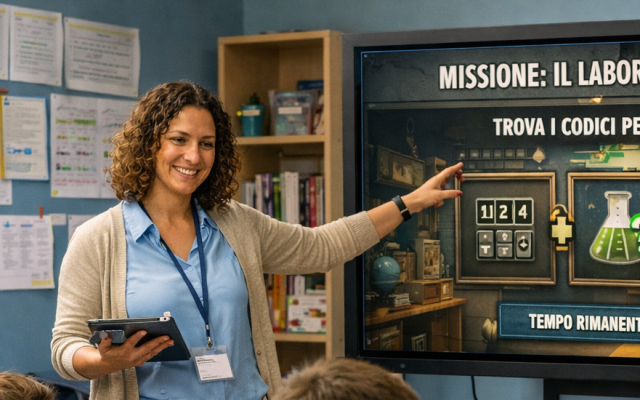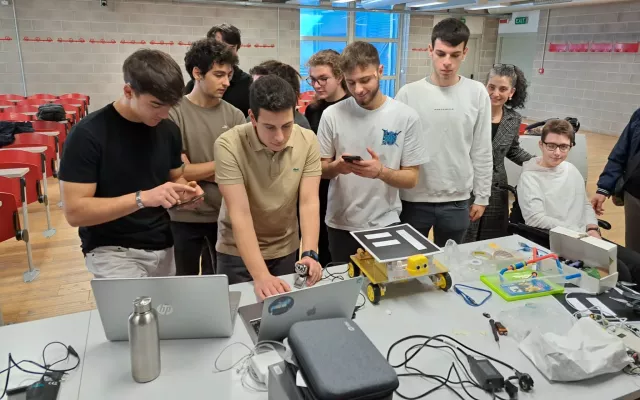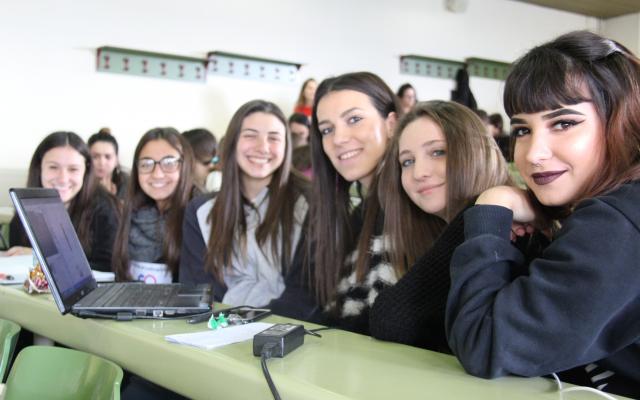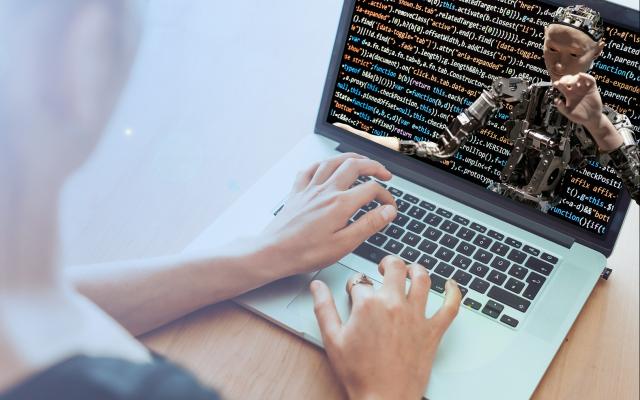In Cagliari, young university tutors guide students in the conscious use of AI
The University of Cagliari hosted the second stop of the Coding Girls national tour, concluding a nine-hour training course for the Ital.IA Lab project, carried out in collaboration with Microsoft Italy [see news item AI is an ally of the local area in Cagliari].
With a hackathon entitled 'Rethink. Artificial intelligence & design thinking at the service of the local area', over 100 students from four Sardinian high schools (Brotzu, Ciusa, Giua, Paglietti) engaged in a stimulating challenge of ideas. The goal was ambitious: to imagine innovative solutions that, by exploiting the potential of artificial intelligence, could respond to the needs of the community and improve people's lives.
The participants, divided into teams, worked to design immersive digital experiences and tools to enhance the “hidden” heritage, transforming culture into a living resource for sustainable development.
A crucial role in this process was played by the trainers, university tutors who guided the teams through the design thinking method, enabling them to work collaboratively and creatively. These young mentors were instrumental in transferring not only technical knowledge but also a conscious approach to artificial intelligence.
Three of these young people, Simone Garau, Giovanni Battista Corona and Ahmed Bensaid, all students of the Master's Degree in Computer Science with a curriculum in Applied Artificial Intelligence at the University of Cagliari, offer a direct perspective on their role and motivations.
Simone Garau, with his experience as a Full Stack Developer and a background in teaching computer science, chose to join the Coding Girls project because he enjoys “teaching kids in an alternative way”. His confidence in his ability to approach young people comes from his age, which is still close to that of the students. Simone hoped that the project would enable him to ‘pass on as much knowledge as possible to the students and bring them closer to this world that has always fascinated me’. He believes that AI is already having a positive impact on the present, particularly in ‘time management and problem solving’, and envisages a future AI ‘in an even simpler and more convenient format’.
Giovanni Battista Corona also participated in the project with a clear vision: ‘to step out of my comfort zone’ and ‘to help young people understand the potential of AI.’ His passion for computer science and programming lies in their ‘logic and creativity and, above all, their innovative potential.’ Giovanni Battista sees AI as a force that is ‘changing the way we learn and work’ and believes that in the future it will be ‘part of everyone's life’, making it essential to learn how to use it ‘correctly and responsibly’.
Ahmed Bensaid said, “I am passionate about understanding what is behind the systems we use every day. Artificial intelligence in particular intrigues me a lot because, from the outside, it can seem almost like magic, but I am interested in understanding how it works in depth. It also gives me the opportunity to experiment and create something of my own”.
Their testimonials highlight the importance of having young, passionate trainers who are able to connect with students and convey not only technical skills but also a sense of responsibility and enthusiasm for the endless possibilities offered by artificial intelligence.





